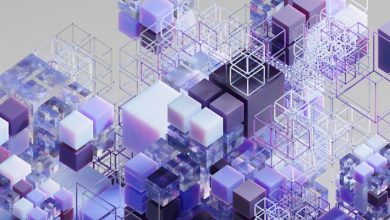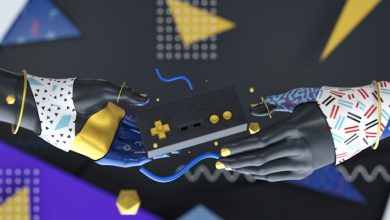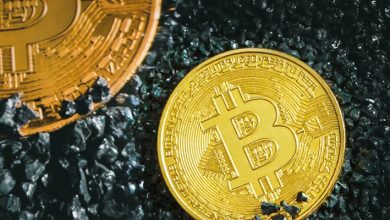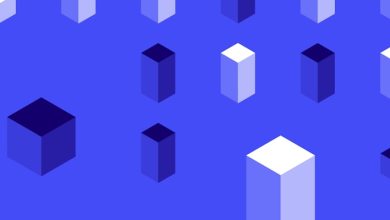The Role of Oracles in Connecting Blockchain with Real-World Data

- Understanding the concept of oracles in blockchain technology
- How oracles bridge the gap between blockchain and real-world data
- The importance of reliable data sources in blockchain oracles
- Challenges and limitations faced by oracles in connecting with real-world data
- Exploring the various types of oracles used in blockchain applications
- Future implications of utilizing oracles for real-world data integration in blockchain
Understanding the concept of oracles in blockchain technology
Understanding the concept of oracles in blockchain technology is crucial to comprehend how blockchain connects with real-world data. Oracles serve as a bridge between the blockchain and external sources of information, enabling smart contracts to interact with data beyond the confines of the blockchain network. Essentially, oracles act as data feeds that provide blockchain applications with up-to-date information from the real world.
How oracles bridge the gap between blockchain and real-world data
Oracles play a crucial role in bridging the gap between blockchain technology and real-world data. They act as intermediaries that fetch external data and feed it into smart contracts on the blockchain. This enables blockchain applications to interact with real-world events and information, making them more versatile and powerful.
By connecting blockchain with real-world data, oracles enable smart contracts to execute based on real-time information. For example, they can trigger a payment when a shipment is delivered or update insurance policies based on weather conditions. This functionality expands the use cases of blockchain beyond simple transactions, opening up possibilities in areas like supply chain management, insurance, and decentralized finance.
Oracles come in various forms, including centralized oracles managed by a single entity, decentralized oracles that rely on consensus mechanisms, and even hardware oracles that connect physical devices to the blockchain. Each type has its own strengths and weaknesses, depending on the level of trust, security, and decentralization required for a specific use case.
Overall, oracles serve as a critical link between the immutable, trustless nature of blockchain technology and the dynamic, unpredictable nature of real-world data. They enable blockchain applications to access, verify, and act on external information, paving the way for a more interconnected and automated future. As blockchain technology continues to evolve, the role of oracles will become increasingly important in ensuring its integration with the wider world.
The importance of reliable data sources in blockchain oracles
Reliable data sources play a crucial role in ensuring the accuracy and trustworthiness of blockchain oracles. Oracles act as bridges between smart contracts on the blockchain and real-world data, enabling the execution of contracts based on external information. Without reliable data sources, the integrity of the entire system can be compromised, leading to potential errors or vulnerabilities.
When it comes to blockchain technology, the quality of the data being fed into smart contracts is paramount. Inaccurate or manipulated data can result in incorrect outcomes, financial losses, or even security breaches. This is why selecting trustworthy and verifiable data sources is essential for the proper functioning of blockchain oracles.
By using reputable data feeds from reliable sources, blockchain oracles can provide accurate and up-to-date information to smart contracts, ensuring that they execute as intended. This not only enhances the overall efficiency of the blockchain ecosystem but also increases trust and confidence in the technology as a whole.
Moreover, reliable data sources help mitigate the risk of manipulation or tampering with the information being transmitted to smart contracts. This is crucial for ensuring the security and immutability of blockchain transactions, as any compromise in data integrity can have far-reaching consequences.
Overall, the importance of reliable data sources in blockchain oracles cannot be overstated. By leveraging trusted data feeds, blockchain developers can build robust and secure applications that operate seamlessly with real-world information, paving the way for widespread adoption and innovation in the decentralized space.
Challenges and limitations faced by oracles in connecting with real-world data
Oracles play a crucial role in connecting blockchain technology with real-world data, but they face several challenges and limitations in performing this task effectively. One of the main challenges faced by oracles is the issue of trust. Users need to trust the data provided by oracles to make important decisions, but verifying the accuracy and reliability of this data can be difficult.
Another challenge is the potential for manipulation or tampering with the data that oracles provide. Since oracles are often centralized entities, there is a risk that they could be compromised or influenced to provide false information. This can undermine the integrity of the entire blockchain network and lead to serious consequences.
Furthermore, oracles may struggle to access real-world data in a timely manner. Delays in obtaining data can result in outdated information being used on the blockchain, which can impact the validity of transactions and smart contracts. This can also create opportunities for malicious actors to exploit vulnerabilities in the system.
In addition, oracles must grapple with the challenge of scalability. As blockchain networks grow in size and complexity, the demand for real-world data will also increase. Oracles need to be able to handle large volumes of data efficiently and accurately to support the needs of users and applications on the blockchain.
Exploring the various types of oracles used in blockchain applications
One of the key components in connecting blockchain technology with real-world data is the use of oracles. Oracles act as intermediaries that retrieve and verify external data to trigger smart contracts on the blockchain. There are several types of oracles that are commonly used in blockchain applications to ensure the accuracy and reliability of the data being inputted.
The first type of oracle is a software oracle, which relies on pre-programmed algorithms to fetch data from various sources and deliver it to the smart contracts. This type of oracle is efficient and cost-effective, making it a popular choice among developers.
Another type of oracle is a hardware oracle, which uses physical devices to collect data from the real world and transmit it to the blockchain. Hardware oracles are often used in IoT applications where sensor data needs to be securely fed into the blockchain.
A third type of oracle is a consensus-based oracle, which relies on voting mechanisms from multiple independent oracles to reach a consensus on the accuracy of the data. This approach enhances security and reduces the risk of data manipulation.
Lastly, a decentralized oracle network (DON) is a collective of independent oracles that work together to provide reliable data inputs to smart contracts. By distributing the data retrieval and verification process among multiple oracles, a decentralized oracle network can increase trust and reliability in the data being fed into the blockchain.
Overall, exploring the various types of oracles used in blockchain applications is crucial for ensuring the integrity and accuracy of real-world data inputs. Each type of oracle brings its own set of advantages and challenges, and choosing the right one depends on the specific requirements of the blockchain project at hand.
Future implications of utilizing oracles for real-world data integration in blockchain
Utilizing oracles for real-world data integration in blockchain has significant future implications for the technology. By bridging the gap between blockchain smart contracts and external data sources, oracles enable the execution of complex transactions based on real-time information. This opens up a wide range of possibilities for industries such as finance, supply chain, healthcare, and more.
One of the key benefits of oracles is their ability to bring transparency and trust to blockchain applications by verifying the accuracy of external data. This can help prevent fraud and manipulation, as well as improve the overall reliability of decentralized systems. As blockchain technology continues to evolve and become more mainstream, the demand for reliable oracles will only increase.
Furthermore, the use of oracles can also help blockchain systems become more versatile and adaptable to changing market conditions. By providing access to real-world data, smart contracts can be programmed to respond to external events and trigger actions automatically. This can streamline processes, reduce costs, and improve efficiency across various industries.
In conclusion, the integration of oracles for real-world data in blockchain has the potential to revolutionize how transactions are conducted and verified in the digital age. As the technology matures and adoption grows, we can expect to see even more innovative use cases emerge, further solidifying the role of oracles as a crucial component of the blockchain ecosystem.






